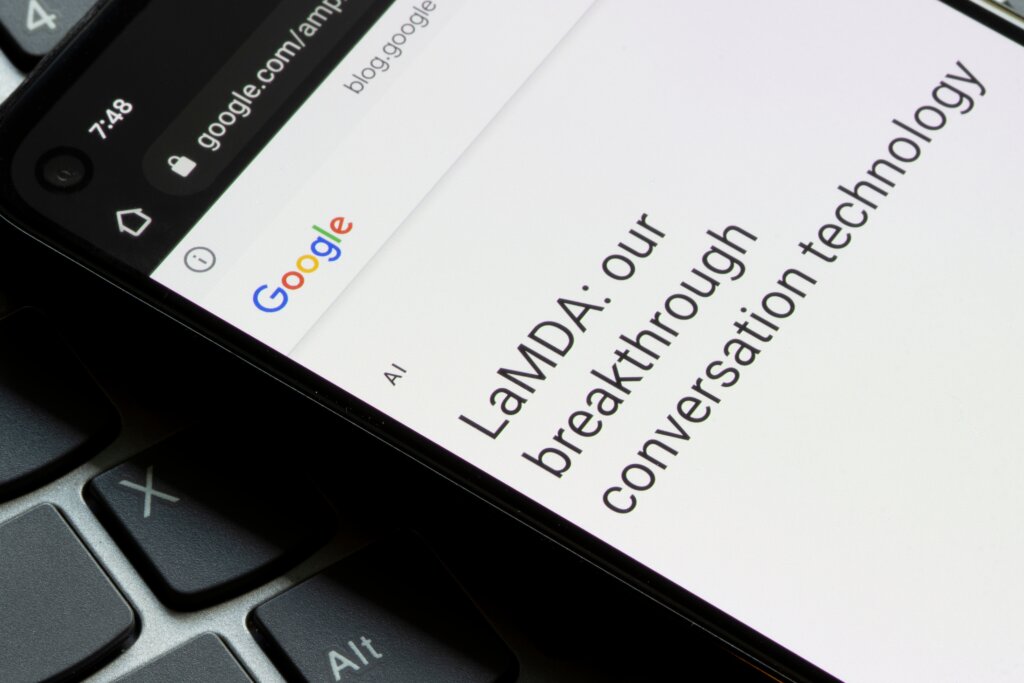
Source – Shutterstock
Battle of the bots: Baidu joins the AI chatbot revolution to take on ChatGPT
- Baidu Inc. is set to join the AI chatbot craze with the launch of a ChatGPT-like service in March.
- The news of the upcoming AI chatbot has caused the company’s shares to rise by 5.8%.
Artificial Intelligence (AI) chatbots have gained immense popularity in recent years, especially with the advent of cutting-edge AI language models such as OpenAI’s ChatGPT. ChatGPT has revolutionized the field of AI by offering highly sophisticated and human-like conversational capabilities, making it a popular tool for various use cases including customer service, information retrieval, and personal assistants.
With its ability to understand and generate human-like responses, ChatGPT has set a new standard for AI chatbots, attracting widespread interest from businesses, governments, and consumers alike.
Baidu influenced by OpenAI chatbot.
Baidu Inc., China’s largest search engine company, is set to join the AI chatbot craze with the launch of a ChatGPT-like service in March. The as-yet-unnamed tool, which will be integrated into the company’s main search services, will allow users to access conversation-style search results similar to OpenAI’s ChatGPT.
Baidu, a pioneer in AI since 2010, is known for its full AI stack, including natural language processing, speech recognition, knowledge graph, computer vision, and augmented reality, and an open AI platform to facilitate wide application and use. It has a proven track record of incorporating AI capabilities into its products and services.
As reported by Bloomberg, news of the upcoming AI chatbot has caused the company’s shares to rise by 5.8%.
Baidu has invested billions in AI research, intending to shift from online marketing to more advanced technology. Its AI system, called Ernie, is a large-scale machine-learning model that will serve as the foundation for a new ChatGPT-like tool. Baidu declined to comment.
OpenAI’s ChatGPT has received widespread attention since its launch in November, attracting over a million users and sparking discussions about AI’s role in various settings. Companies, including Microsoft, invest heavily to develop practical AI applications, while others use the hype to secure funding. BuzzFeed saw its shares soar after announcing plans to use ChatGPT in its content.
Baidu, Alibaba, Tencent, and ByteDance dominate China’s internet landscape. The company aims to revive growth in the mobile era, as it has fallen behind its rivals in areas such as mobile advertising, video, and social media. In addition to AI research, Baidu is also working on autonomous driving technology.
Baidu CEO Robin Li mentioned ChatGPT as an opportunity for the company to take the lead during a December internal speech, according to a transcript seen by Bloomberg News.
“I’m so glad that the technology we are pondering every day can attract so many people’s attention. That’s not easy,” he said. However, he cautioned that it could be difficult to commercialize generative AI by turning it into a “product that everyone needs.”
ChatGPT has generated interest among Chinese internet users who, like people elsewhere, have shared their surprising interactions with the AI on local social media. Despite China’s heavily censored domestic internet, companies like Baidu have become local alternatives to Google, Amazon, and Facebook.
In addition to Baidu, several Chinese startups are exploring generative AI and have received investment from firms like Sequoia and Sinovation Ventures.
The future of AI chatbots.
OpenAI is a market leader in generative AI, with GPT powering most AI-powered copywriting assistants. One such assistant, Jasper AI, has nearly 100,000 paying customers and a 100% increase in annual recurring revenue, powered by OpenAI’s GPT model.
AI experts eagerly await the release of GPT4, which they predict will have 100 trillion parameters, 500 times larger than GPT-3, leading to more accurate responses.
Despite significant investments in AI, Google has been slow in releasing its generative models. It is noteworthy that, despite being labeled as a “Google search killer,” OpenAI’s ChatGPT has not elicited a response from Google, as executives reportedly deemed it a “reputational risk” to launch a competing chatbot.

Source – Shutterstock
Google’s Head of AI, Jeff Dean, recently stated that despite possessing AI technology and capabilities, the company has to make decisions more cautiously than a small startup. He made these comments in response to an employee’s question about the potential “missed opportunity” of not creating a competing chatbot, considering that Google has its conversation technology, such as LaMDA (Language Model for Dialogue Applications).
Nonetheless, another AI chatbot platform, set to be released in a couple of weeks, is exciting to see. Baidu’s expertise in AI puts it in an advantageous position for successfully implementing an AI chatbot. As one of China’s largest search engine companies and an early adopter of AI, Baidu has the opportunity to bring its AI expertise to the chatbot space and offer users a new and innovative way to access search results.
READ MORE
- Ethical AI: The renewed importance of safeguarding data and customer privacy in Generative AI applications
- How Japan balances AI-driven opportunities with cybersecurity needs
- Deploying SASE: Benchmarking your approach
- Insurance everywhere all at once: the digital transformation of the APAC insurance industry
- Google parent Alphabet eyes HubSpot: A potential acquisition shaping the future of CRM


